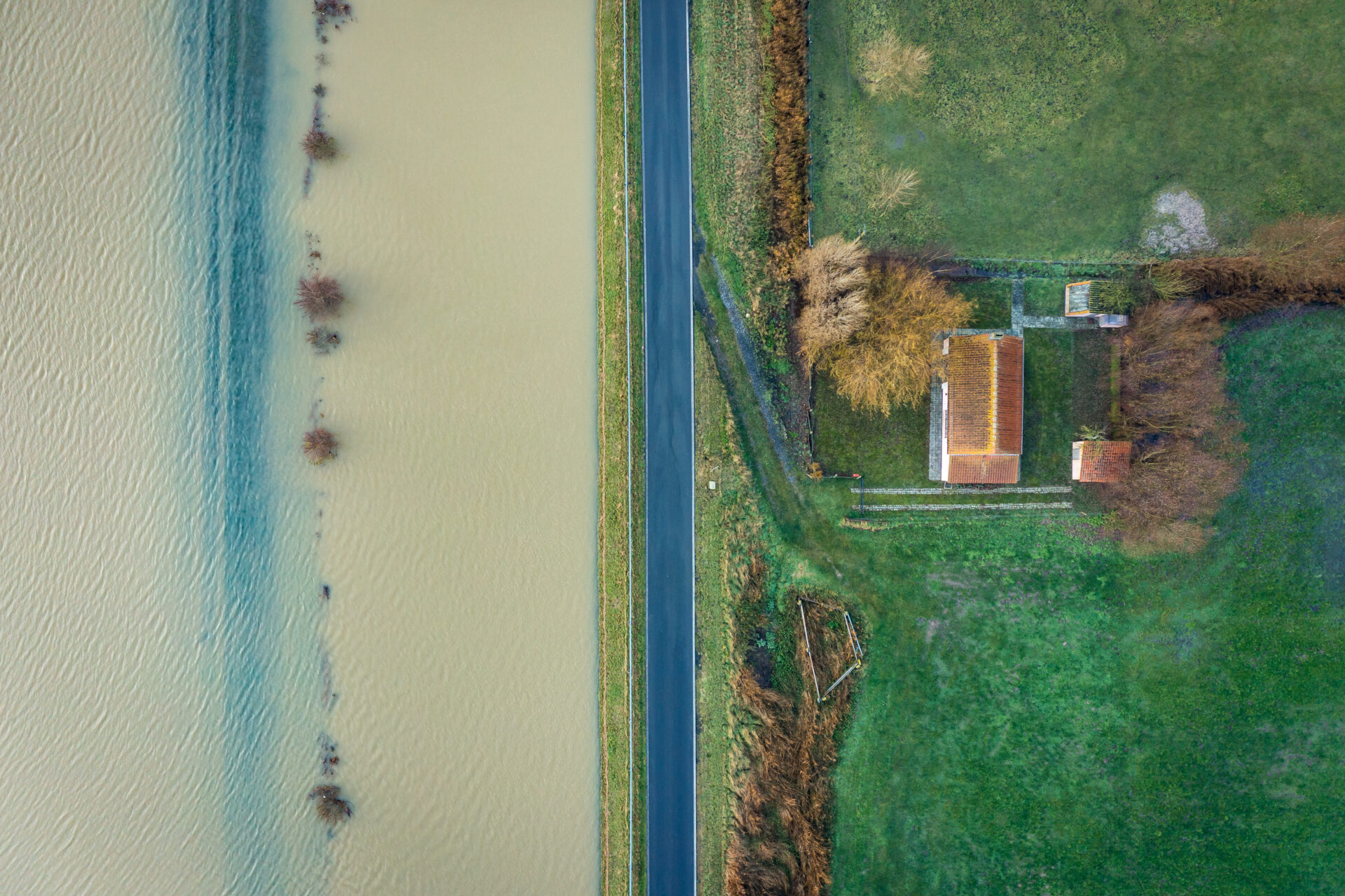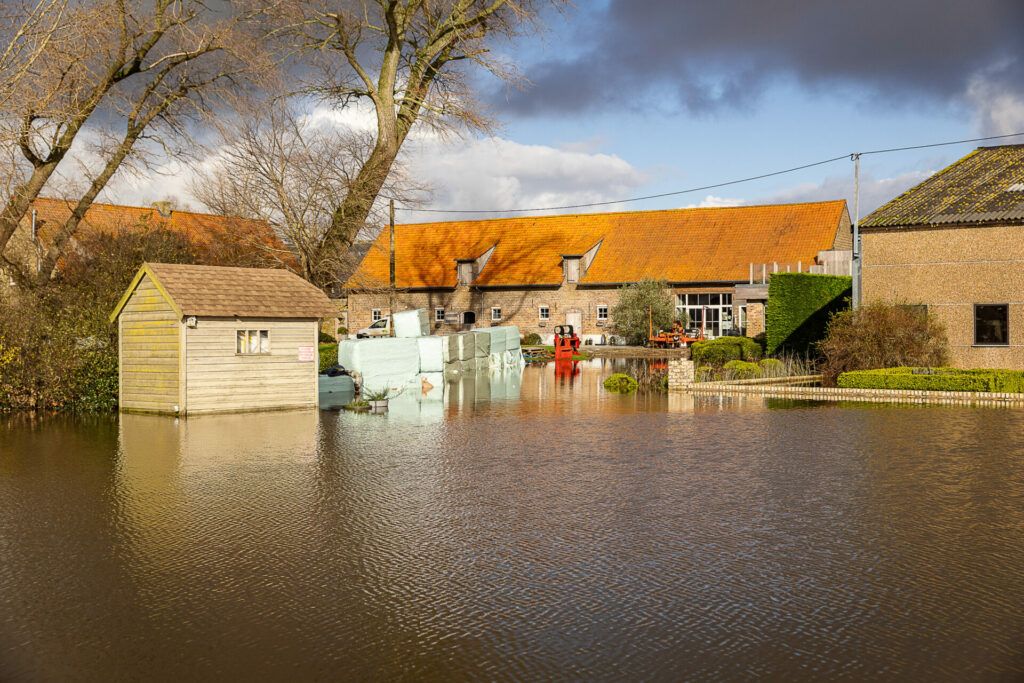The prolonged and heavy rainfall in Belgium's Westhoek last week highlighted the urgent need to double down on efforts to prepare the country for periods of adverse weather, which data already shows are more frequent.
The western part of West Flanders was tormented by heavy rain for almost two weeks in November, with record water levels resulting in widespread flooding. On Thursday 16 November, all-time highs were recorded at 17 of the 20 measuring points in West Flanders.
With the region now getting back on its feet, figures from Statistics Flanders show that the number of days with at least 20 millimetres of precipitation per day – comparable with the rain that fell in West Flanders – measured at the Uccle weather station of the Royal Meteorological Institute (RMI) increased significantly since the 1950s.

Number of days with heavy precipitation in Belgium (measured in Uccle between 1892 and 2022). Credit: KMI/Flemish Environment Agency
Until the 1950s, measurements in Uccle showed an average of 3.4 days per year with heavy precipitation; in recent years this has risen to 5.7 days. The record year was 2004, with 12 days of heavy precipitation; 2021 – a year marked by deadly floods in Belgium – followed with 10 days of heavy precipitation.
Raining more than ever
Climate scientists predict that the intensity and frequency of extreme weather phenomena, including heavy rainfall, will increase due to climate warming. A report by the UN's environment agency UNEP showed that the world is on course for warming of 2.5 to 2.9°C.
"The effects of climate change are visible and felt in all regions of the world," Rozemien De Troch, a climate scientist at the Belgian Climate Centre, told The Brussels Times. "How this will manifest depends on the action that is taken now to reduce greenhouse gas emissions."

An aerial drone picture shows floods in December 2021 in Lo-Reninge. Credit: Belga / Kurt Desplenter
In the worst-case emissions scenario, climate projections for Belgium foresee a 12% increase in extreme precipitation (at least 22 mm per day) by the end of the century.
In particular, a warmer climate will result in wetter winters for Belgium, accompanied by drier summers. Rain that does fall in summer will be heavier and more prone to flooding as soil will be too dry to absorb large quantities.
Related News
- Giant thermometer appears on Place De Brouckère
- Global warming: The 2°C temperature rise exceeded for the first time
In this context, De Troch stresses the importance of adapting land and water management. In the wake of last week's floods, the Flemish government announced a task force of experts and local actors to assess how to make the region less vulnerable in future.
Environment minister Zuhal Demir stated that the events in Westhoek convinced her that the focus on climate adaptation is the right one. She pointed to adaptation plans such as the Blue Deal – a regional initiative to protect Flanders against both drought and flooding.
But Belgium's efforts risk being fragmented. Whilst strategies to prevent, mitigate and defend against floods are a regional competence, "flood preparedness" and "flood management" are regulated at the federal level.

